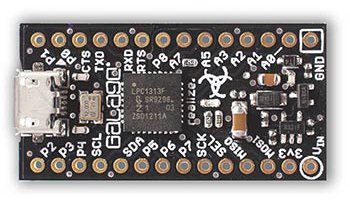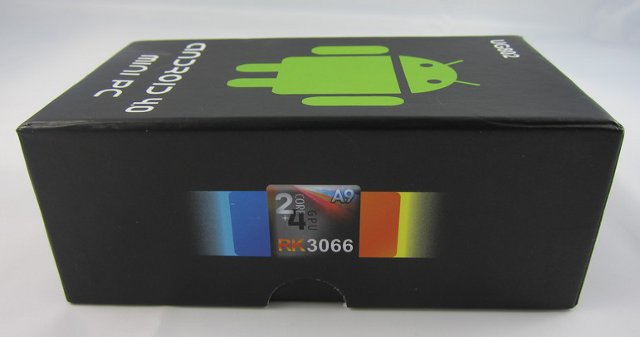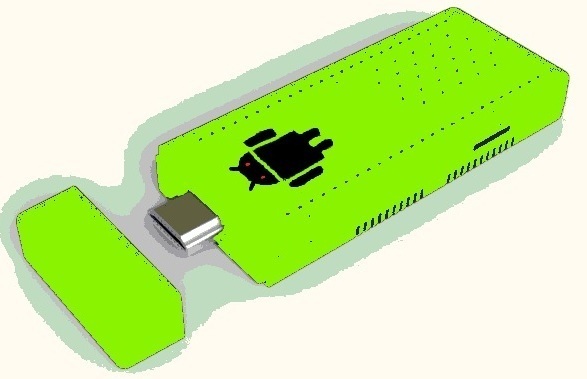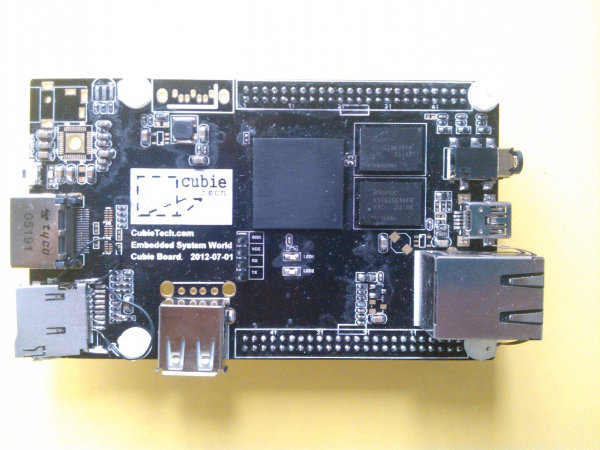Linaro release 12.09 has just been announced, and includes Linux Kernel 3.6-rc6 and Android Jelly Bean. This release provides further improvement to Android Jelly Bean, Android benchmark characterization, an ARMv8 OpenEmbedded image, UEFI bootloader support for Vexpress, origen and pandabords, and some improvement to big.LITTLE and power management. Here are the highlights of the release: Android All Linaro patches are now available on Jelly Bean. Accelerated graphics is now available on Snowball Jelly Bean build. AndEBench, AndEBench Java, Linpack, CaffeineMark, Antutu 2D and 3D, NBench, Quadrant, I/O Benchmark, Vellamo benchmark hotspot characterization available. An Origen tracking build is available and will be released this cycle as a Linaro Evaluation Build (LEB). Audio works on Origen running Jelly Bean (WAV file only). A Monkeyrunner script to run Streamline has been completed. First rev of the NI PXIe-4154 based power measurement system is created. See http://www.youtube.com/watch?v=9bKyuxLl4iw&feature=plcp In-tree AOSP tests have been automated. […]
uClinux on Cortex-M3/M4 MCU: The Costs, Performance and Power Consumption
I previously wrote about different options available to run Linux on Cortex M3 & M4 Microcontrollers, and more recently Vladimir Khusainov, co-founder and Director of Engineering at Emcraft Systems,wrote a longish article entitled “Practical Advice on Running uClinux on Cortex-M3/M4” on electronicdesign.com, where he explains how SoM are usually selected, the costs of running uClinux on Cortex M3/M4 MCUs such as Freescale K70 or STmicroelectronics STM32F2/F4, as well as performance and power consumption considerations. First, Vladimir addresses one comment that says there’s basically no use for uClinux on Cortex M3/M4 MCU, since external memory is needed and an ARM7/ARM9 modules (with MMU) can be purchased for almost the same price. There are 2 counter arguments to this point of view: In practice, customers usually select an hardware platform first, then think what OS can be used on the platform. For example, if a company decided to use an hardware based […]
$25 Outbreak Galago – Cortex M3 Open Hardware Development Kit
Outbreak Galago is a tiny development kit based on a Cortex M3 processor that fits a debugger, and is destined for rapid electronics prototyping. The company promotes it as some sort of Arduino board on steroid (MCU wise) and sells for $25 on kickstarter, and less than $10 in 10k quantities. Here are the board specifications: 72 MHz 32-bit ARM CPU with 32KB of flash ROM and 8KB of RAM (NXP LPC1313 TBC) Integrated hardware debugger One high-speed SPI port, up to 36 Mbps One high-speed I2C port, up to 1.5 Mbps One UART/USART with hardware flow-control capability, up to 256 kbps 10 high-speed PWM pins, 6 driven by 32-bit (high-resolution) timers 6 ADC (analog) input pins with 10-bit resolution at over 400 KSa/sec 25 GPIO (digital) input/output pins The form factor and built-in debugger (via USB) are not really new, as those are already featured in devkit such as TI Piccolo controlSTICK, […]
UG802 Android mini PC Unboxing and Review
Leo, a reader of this blog who seems to be indirectly involved in togetho.ru, has written a review for UG802 dual core mini PC in Russian. He has allowed me to post the review in English, and I wrote condensed review in English which you can read below. UGoos UG802 is sent in the following package that clearly shows it’s based on Rockchip RK3066 processor. Now let’s see what’s inside the package. There’s the UG802 TV stick, a female to male HDMI cable (which appears to be too short as usual) and a USB cable to power the device. UG802 is not the smallest mini-PC around as you can see from the picture on the right where it is compared to a flash drive, but it weights just 31g, has a lot of ventilation holes, and features an HDMI male connector, a microSD card slot, microUSB and USB ports. Leo […]
Building Kernel Modules for AllWinner A10 Android Devices (e.g. Joystick Support)
Reader JP has enabled Joystick support in Android 4.0.4 on its Mele A1000, this now works with a Playstation2 joystick via USB adapter, a Huskee PC joystick, and 2 other unbranded joysticks. In order to enable Joystick support he had to build a kernel module, and encountered a few issues, so he wrote an how-to which shows what challenges he went through and what solutions he found to those issues.I’m sharing today a slightly edited version of this how-to. This How-to assumes that you have a valid Linux environment where you can build allwinner A10 kernel. The toolchain used was “Sourcery CodeBench for ARM GNU/Linux Lite“ which can be downloaded here: http://www.codesourcery.com/sgpp/lite/arm/portal/package7853/public/arm-none-linux-gnueabi/arm-2010.09-50-arm-none-linux-gnueabi.bin To install it, simply run:
|
1 |
sudo ./arm-2010.09-50-arm-none-linux-gnueabi.bin |
You’ll also need the latest Allwinner A10 kernel source:
|
1 |
git clone git://github.com/amery/linux-allwinner.git |
Then follow the usual procedure:
|
1 2 |
make ARCH=arm sun4i_crane_defconfig make menuconfig ARCH=arm |
I then selected the modules needed for different kind of joysticks namely:
|
1 2 3 4 5 6 7 8 9 10 11 12 13 14 15 16 17 |
--- Networking support <*> Bluetooth subsystem support ---> <M> HIDP protocol support Bluetooth device drivers ---> <M> HCI USB driver [*] HID Devices ---> Special HID drivers ---> <M> Sony PS3 controller <M> DragonRise Inc. game controller [*] DragonRise Inc. force feedback <M> Pantherlord/GreenAsia game controller [*] Pantherlord force feedback support <M> GreenAsia (Product ID 0x12) game controller support [*] GreenAsia (Product ID 0x12) force feedback support <M> SmartJoy PLUS PS2/USB adapter support [*] SmartJoy PLUS PS2/USB adapter force feedback support |
I saved the […]
Dual Droid TV Stick based on Rockchip RK3066 with 2GB RAM & 16GB Flash
Lately, there seems to have been a fair amount of interest for a Rockchip RK3066 mini PC (aka UG802) running Android 4.0, and the first mini PC to feature a dual core processor. I’m often reading people complaining about the lack of RAM on those devices, and some others would rather run most things from flash than an SD card for performance reason. But you might be able to get a more powerful mini PC soon, as deadhp1, a reader of this blog would left lots of feedback about Ug802, have been talking with manufacturer to design an HDMI TV stick based on UG802 platform, but with 2 GB RAM and 16 GB Flash, and the processor would be clocked at 1.6GHz instead of 1.2 GHz. The device is called “Dual Droid TV Stick” with the slogan: “Two brains are better than one”. The specifications would be as follows: OS […]
$49 Cubieboard: AllWinner A10 Open Hardware Development Board
The Cubieboard is a development board for the AllWinner A10 Cortex A8 processor. Contrary to some other AllWinner A10 “development board” that are simply based on a tablet or mini PC PCB, the cubieboard has been designed specifically as a development platform and provides access to I/O pins. Here are the specs of this development board: SoC – AllWinner A10 1GHz ARM cortex-A8 processor with Mali400 GPU System RAM – 1GB DDR3 @400MHz Storage – 2 MMC slot Video Output – HDMI 1080p Connectivity – 10/100M Ethernet USB – 2 USB Host, 1 USB OTG 1 IR sensor 96 expansion pins including i2c, spi, lvds, sata… Wi-Fi and Bluetooth can be supported via external USB dongle(s). The prototype above is the first revision of the hardware, and final hardware may look different. Some connectors (e.g. SATA) are not soldered in the picture above. The cubieboard is expected to be an […]
Linaro 12.08 Release with Kernel 3.6 and Android 4.1.1 Jelly Bean
Linaro release 12.08 includes Linux Kernel 3.6-rc2 and is the very first release with Android Jelly Bean (4.1.1-R4). The Android platform team has managed to port Android Jelly Bean to all their main development platforms: Versatile Express, Versatile Express RTSM, Samsung Origen, TI PandaBoard, ST Ericsson Snowball, as well as Samsung Galaxy Nexus smartphone. They’ve also added TINY_ANDROID, a minimal Android build that can be used for kernel development, toolchain work and other development where users only need a console. It’s possible to get the source code, build it and access the shell within 10 minutes. U-boot-Linaro has been updated and is now based on the latest upstream release v2012.07. Next month, we might be able to see a preliminary port of Android on 64-bit platform (ARMv8). Here are the highlights of the release: Android Automated Methanol (http://gitorious.org/methanol) browser benchmarking in Linaro Android. Automated over 100 Jelly Bean AOSP tests. […]









